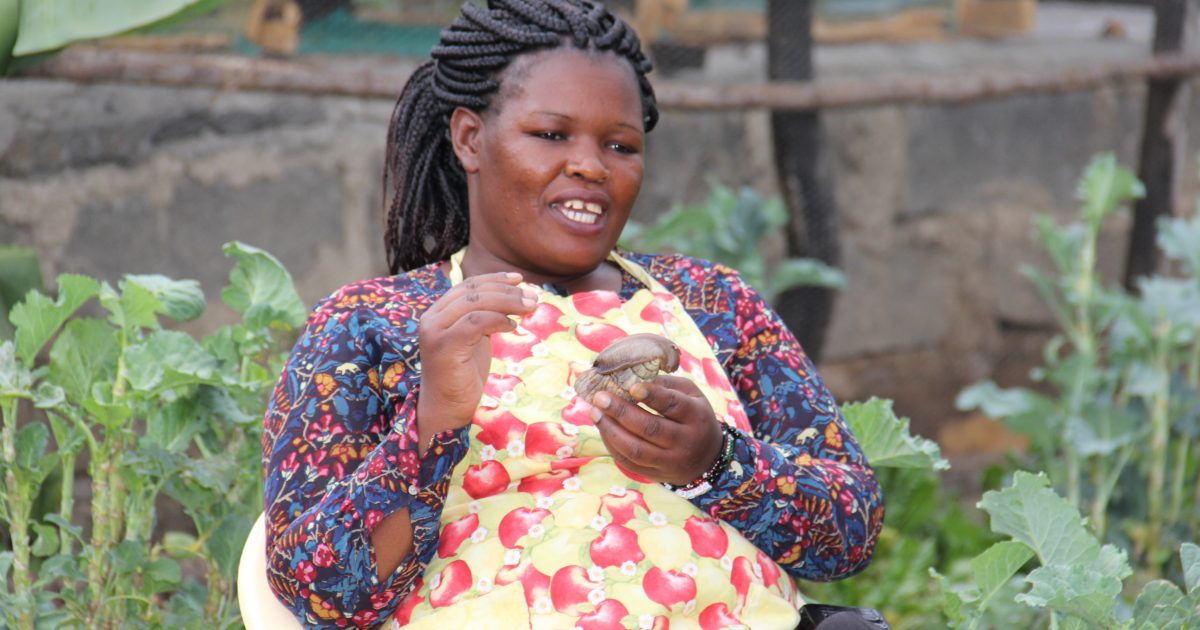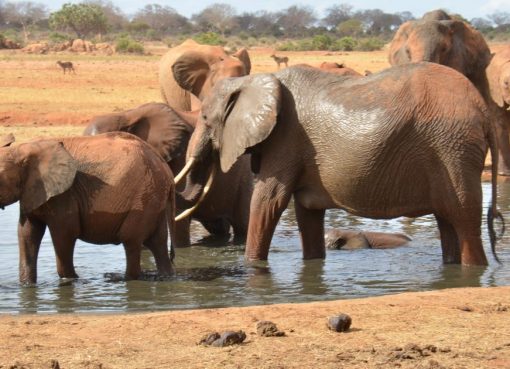Some 15km from Nakuru town there is a whirlwind of activity at Wangui Waweru’s farm on which she rears what she counts a delicacy but which many Kenyans deem inedible and disgusting and are yet to embrace.
As Ms Waweru plies her snail farming activities, barely a kilometer from the Lanet Airstrip, she is optimistic that the planned upgrade of the facility will see the region’s airspace become busier and hopes that one day the blossoming air transport will enable her deliver her farm produce to different parts of the world.
A 10m-by-10m greenhouse – the snail farm – stands conspicuously in her compound. Waweru has partitioned the snail house into four rooms and each contains several plastic basins covered with fine wire mesh to keep predators at bay.
Ms Waweru discovered snail rearing as a farming business opportunity after a visit to Kisumu to sell farm produce. 13 years down the line she has not looked back.
“Marketing my farm produce at the time, was one of the hardest things I experienced as a farmer. I spent many sleepless nights thinking about cost and where to sell since most farmers harvest their farm produce at the same time which fuels the marketing challenge.
The idea to venture into snail farming came about during one of my trips to Kisumu to sell farm produce. I visited a snail farmer who dished out a few tips on rearing them as well as potential markets. She took me to the farm where she had bought them and I immediately developed an interest in rearing the snails,” she recalls.
After returning back to Nakuru, Waweru decided to give snail farming a try. She realized that she needed to be empowered and therefore started by enrolling for a course at the Kenya Wildlife Service (KWS) training institute.
Armed with the knowledge she needed, Ms Waweru embarked on setting up a green house where she would breed the slimy ‘delicacy’. She ploughed Sh30,000 into the venture from her savings to buy greenhouse polythene, wire mesh and 100 plastic basins She then procured a permit from the Kenya Wildlife Service at Sh1,500 and started off in business.
Her biggest customers are expatriates in Kenya from Europe, Asia and West Africa who, unlike the locals, have developed a taste for what locals consider unpalatable, which by the way is a very healthy meat; high in protein and very low in cholesterol.
“Africa is home to the largest species of snails in the world, the Giant African land snail,” Waweru says and adds that snails are easy and cheap to keep and maintain. “And when you target the right market and customers, snail farming can be a very rewarding business.
The Giant African snails thrive in hot and humid environment like that in Lanet. snails have an average lifespan of 5-7 years, but with good management, they can live up to 10 years,” she explains.
Ms Waweru, a mother of three, keeps 4,500 snails of the Giant African land variety (Achatinide fulica), which she sells at between Sh2,000 to Sh3,000 per kilo. On average, she sells 30 kilograms of the slimy creatures per month.
The farmer explains that snails are a common delicacy among communities in West Africa and she has established a niche market among Ghanaians, Cameroonians, Nigerians, Senegalese, Sierra Leonians and the Togolese, South Americans and Asians in the country.
Kenya Wildlife Conservation and Management Act 2013 allows communities to farm animals such as snails, ostriches, snakes and crocodiles.
Prior to a permit being issued, the Kenya Wildlife Service (KWS) sends a research team to access the facility one has. Part of the task of KWS involves periodical monitoring of the management of the snail farms.
Before selling snails for consumption in hotels or for the export market, one has to be certified. In addition, farmers have to make quarterly reports to KWS.
She feeds the slimy creatures on vegetables like cabbages and fruit pieces, particularly watermelons. The vegetables should preferably be organic. The creatures also require plenty of water and calcium to strengthen their shells.
Ms Waweru says the molluscs contain 15 per cent proteins, 2.4 per cent fat and 80 percent water. In addition, they are rich in fatty acids, calcium, iron, selenium, magnesium and vitamins E, A, K and B12.
“Snail meat is very safe as the moist soil in which they remained buried beneath during the day to stay safe from predators is sterilized to avoid contamination or bacterial infections.
It has very rich qualities and tastes like gizzards. It is easy to prepare. One needs to boil it for five minutes to get rid of the mucus. Once boiled, you can try it with tomatoes and onions.
To enhance food security, Kenyans need to diversify their choice of foods. Snails are plentiful in counties where people are either starving or malnourished,” she observed.
Giant African land snails are hermaphrodite, which means that they have the reproductive organs for both male and female. A snail produces 300 to 500 eggs in three months, which hatch after 11 to 15 days, enabling one to increase their population faster.
According to Waweru, snails mature after six months. They grow big, but after another six months, their growth stagnates again.
Ms Waweru offers that snails are quite vulnerable to predators such as lizards, caterpillars, rats, ground beetles, termites and spiders. Flies on the other hand lay eggs and the maggots end up eating the snails.
Apart from consumption, Wangui explains that snails are a good skin treatment regime as the slime they produce (known as mucin once it has been processed) is used to produce skin care products.
Snail mucin contains antioxidants that may help reduce signs of aging like wrinkles, uneven skin tone and sagging.
Studies indicate that snail mucin helps with skin regeneration and protects against damaging free radicals. Snail mucin also hydrates, boosts collagen production, heals wounds and even soothes irritation.
By Jane Ngugi and Jane Wambui




